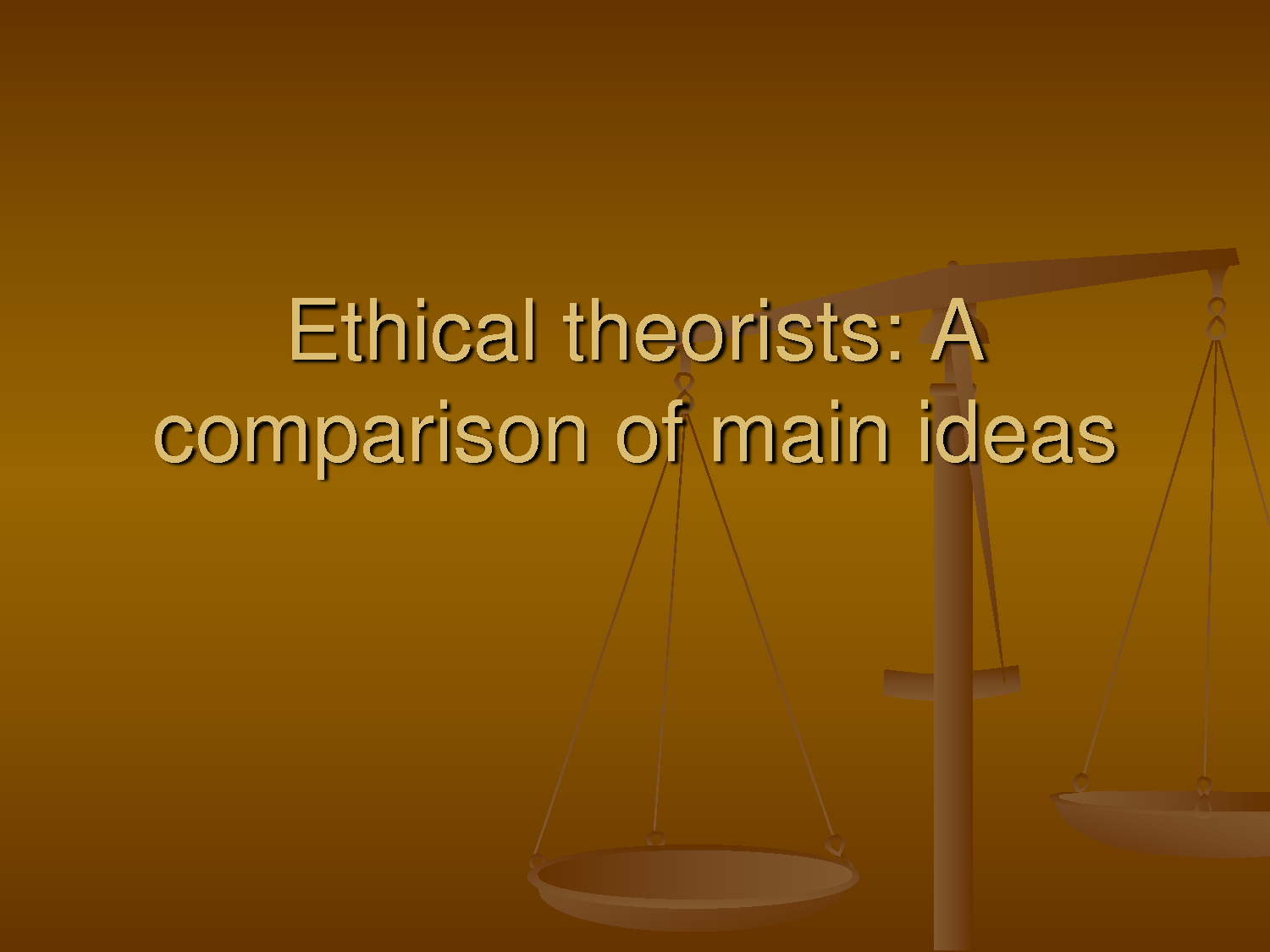Ethical theories -1: Verghese Pamplani

 Shri Verghese Mathew Pamplani (75), originally from Kerala, is an enthusiastic reader and a gifted writer, who lives in UK now. He began his career as a teacher but ended up as Deputy General Manager in Reserve Bank of India – Trivandrum. By temperament, he is agnostic; his extensive reading has helped him to reinforce his thinking and beliefs. This article is the result of his extensive study and research. This is for those who are interested in the origin and growth of all culture shaping social ethics and philosophies. Joseph Mattappally (Asso. Editor)
Shri Verghese Mathew Pamplani (75), originally from Kerala, is an enthusiastic reader and a gifted writer, who lives in UK now. He began his career as a teacher but ended up as Deputy General Manager in Reserve Bank of India – Trivandrum. By temperament, he is agnostic; his extensive reading has helped him to reinforce his thinking and beliefs. This article is the result of his extensive study and research. This is for those who are interested in the origin and growth of all culture shaping social ethics and philosophies. Joseph Mattappally (Asso. Editor)
Other Posts: Ethical theories – 2: Ethical theories – 3, Ethical theory – 4
Ethical theories -1:
In Ancient Greece, particularly in the writings of Plato and Aristotle there are debates about what makes for good life, about the ideal qualities a person should have and about the relationship between virtue and the quest for happiness.
With the natural law approach of Aquinas there is a medieval attempt to bring together Aristotle’s idea that everything should fulfill its natural end or purpose with the Christian doctrine that all things are created by God in order to provide a comprehensive view of what can be considered natural right.
Later we find four different approaches: Hobbes thought it should be based on a contractual agreement between people; Hume thought it should be based on sentiment rather than reason since people were able to have natural sympathy for others; Utilitarian’s thought is that it should be based on expected results of action, Kant thought that fundamental ethical principles could be based on pure reason alone.
Some 19th and 20th century thinkers (e.g. Nietzsche and Sartre) have considered ethics in the light of self‐development of individuals or the personal questions people ask. Ethics is not discovered but created and shaped by our own choices.
For much of the 20th century ethical theory was dominated by arguments about whether ethical language was meaningful. For some thinkers ethics was seen as an overt way of expressing one’s own preferences or giving commands.
In the last three decades of the 20th century there was revival of interest in applied ethics and also in theories of contract, of virtue and a re‐examination of many earlier ethical arguments.
1 The challenge of ethics
Ethical theory is a branch of philosophy and as such has been influenced by the general questions about life and its meaning, that has been asked by philosophers. It has also been shaped by the social, political and religious culture in which it has developed.
In its broadest context, ethics is the study of human conduct. Questions about what a person “ought” to do therefore lead to more fundamental questions about the nature and purpose of human life.
Ethics is not simply concerned with average standards of behaviour. Rather it is about the quest to find out what is right and good and the best way to live.
There was a time, about the mid 1960s when it could reasonably be assumed that any quest for the nature of goodness or “virtue” was doomed. There was no more striving for a “Good” at the heart of reality.
All that has been changed. Within a couple of decades ethics was being dominated by the great questions of applied ethics. Suddenly the world had set an agenda and expected ethics to come up with some guidelines.
2. What makes morality possible.
Ethics is concerned with the norms of human behaviour, with the choices people make and the way in which they justify those choices. Therefore it would seem that there must be at least three essential requirements for an action to be considered morally significant:
That it involves (directly or indirectly) one or more humans,
That it involves a situation in which rational thought could be applied to the implications of possible courses of action.
That there is a significant degree of freedom involved to permit the possibility of alternative courses of action and thus of the validity of the choice.
The Epicureans
Named after Epicurus (341‐270 BCE) and associated particularly with Lucretius (95‐ 52 BCE) Epicurean philosophy took as its starting point the idea that the whole world was composed of impersonal atoms and everything that happened was the result of absolute physical determination. Therefore the universe itself is not at all a moral place, it is entirely neutral. If people chose to behave morally the fact does not reflect any universal structure, but is simply a choice made by humans for their own particular ends.
Like Aristotle the epicureans saw that morality implied the making of choices in order to achieve a chosen end. They saw that end as basically pleasure although they regarded virtues as the art of achieving human pleasure. One might well restrain one’s inclinations but that was only because unrestrained inclinations can lead eventually to more pain than pleasure. The restraint is applied in order to achieve longer term happiness.
Plato’s ethics was based very much on a person’s place within the social and political life of the Greek City state. One behaved in accordance with one’s place on the social scale. For Aristotle the criteria became more general but also more individualistic. Qualities that make for social harmony were regarded as virtues not because they ultimately benefited the individual. Now with Epicureans (and Stoics also) the moral theory is related to an individual’s chosen end within an impersonal and morally neutral universe. All conventional virtues are accepted but they are now a means to an end – human happiness‐ rather than an end in themselves or reasons of society.
The stoics
The founder of the school of Stoics was Zeno (334‐262 BCE) and early Soics are Cleanthes and Chrysippus. It's Roman exponents included Seneca (1‐65 CE) Epictetus (50‐130CE) and Emperor Marcus Aurelius (121‐180) whose Meditations are good source of information about Stoic views.
The Stoics believed that the universe was ordered by divine providence, that there was a fundamental principle (the logos) which determined everything that happened and that the logos was good. Since everything including one’s own future welfare was determined by a morally good agent, it made no sense to seek happiness as a goal of life. Rather the thing to seek was that which is naturally appropriate, what fits in the overall plan of the universe.
In this sense the Stoics came closer to the contemporary views of morality rather than the Epicureans or Aristotle. They held that what counted was to make an effort to act morally irrespective of the consequences and to act through reason rather than with emotion. Such morality they considered to be the only ”good” and immorality the only “evil”.
The natural ethical response to the Stoics ‘ sense of universal order was to act with integrity since the human soul was thought to be part of a wider world soul. If you do what is right you are at one with the basic reason that guided the whole universe. That and that alone is the basis of morality. Do what is right leaving the final outcome to God.
Key features for a Stoic approach:
Recognise what is reality for what it is and do not pretend it is different.
Take responsibility for what is up to you not for what is not up to you
There is a universal order determining events
What matters is not the result of action but the act of will to do what is right.
The Stoic approach can be termed “natural Law” that everything has an overall rational purpose within the universe and recognition of that purpose is a basis for moral action. The Stoic attitudes blended with the Christian religion, the place of morality within the divine scheme of for the universe, something found in the medieval philosopher and theologian Aquinas.
3. Aquinas and Natural Law.
Thomas Aquinas (1225‐74) wrote from within the Christian tradition and sought to present a rational basis for Christian morality. In doing this, he was profoundly influenced by Aristotle whose work was beginning to be examined and taught again in European universities in the 13th century. The result of this fusion of the secular philosophy of Aristotle and the religious tradition of the Catholic Church produced what is known as the Natural Law approach to ethics.
Two approaches to Christian morality: Authority
Christian ethics arises out of principles and a spiritual situations in contrast to that of non‐ Christians. It takes the Scriptures (as interpreted by the Church), the authority of Church leaders and the inspiration of the Holy Spirit as sources of authority. It sees any system of morality based on human reason as of very limited value. This stems from the theological conviction that through the “Fall” in the Garden of Eden, all natural human life including human reason is separated from God through sin and unable to know and respond to God’s will. All Christian morality comes through the revelation of God Himself.
Natural Law
Natural Law is based on Aristotle’s idea that everything has a purpose, revealed in its design (or natural “form”) and that the fulfillment of that design is the supreme “good” to be sought. This approach did not claim that Christian morality could be based on human reason alone or could operate without any input from revelation. It argued that human reason (given by God) was a starting point for morality. Reason could offer a logical basis for those moral precepts that were also known through revelation and which could be supplemented by the specific moral rules presented in the scriptures. The Natural Law approach dominates Catholic moral thinking.
Features of Natural Law
Natural Law can refer simply to the observed laws of nature. In this sense it is simply a matter of science, which was originally called Natural Philosophy. This not what the Natural Law argument is based on, since it is possible to look at the “efficient” causes of things without seeing any sense of “good” or purpose or design within them.
As presented by Aquinas, the Natural Law approach is based on the religious conviction that God created the world establishing within it a sense of order and purpose which reflects His will
If everything is created for a purpose human reason, in examining that purpose is able to judge how to act in order to conform to that purpose.
In the Natural Law approach to ethics, the action itself can be either natural or unnatural and is judged on that basis. It does not depend for its moral justification upon any results. Thus the action can be deemed morally good in itself even if it brings about suffering.
Natural Law is based on reason rather than revelation, it is in principle discoverable by anyone whether religious or not. For the same reason it is universal rather than culturally conditioned.
Summary List
Christian morality can either contrast itself with rational morality, seeing human reason as “fallen” or it can argue from an overall sense of purpose in the universe towards Christian moral precepts via the concept of “Natural Law”
Natural Law is based on Aristotle’s idea of the” final cause” or purpose in everything. That which frustrates the purpose for which something has been created is deemed to be wrong. The cardinal virtues are qualities which reason suggests are required in order to live a moral life.
Natural Law ethics depends on the belief that the world has been designed by a rational and purposeful creator.
Cont:d


















1 Response
[…] posts: Ethical theories -1: Ethical theories – 2: Ethical theories – 3, Ethical theory – […]